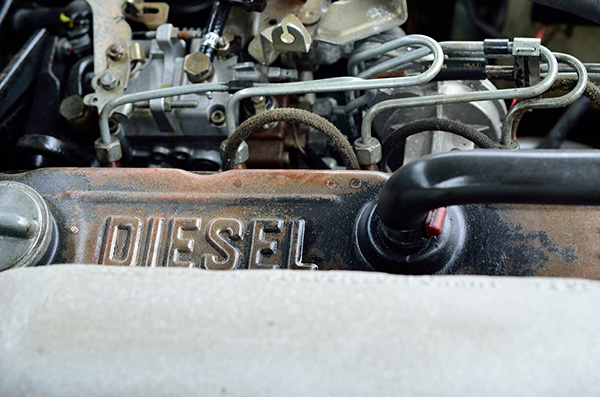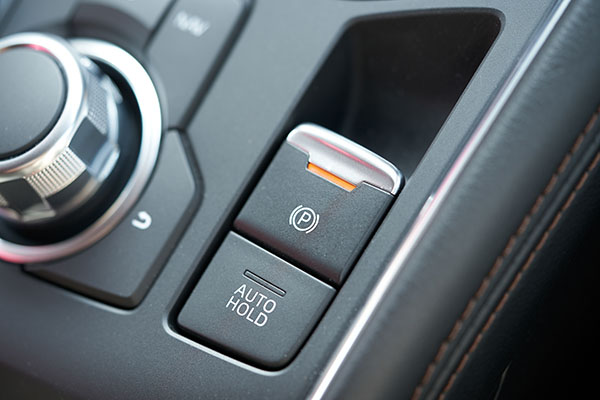Posted on 5/31/2024

There's nothing quite as alarming as seeing the temperature gauge in your car spike into the red zone. Overheating can be a serious issue, potentially leading to engine damage. But what causes your car to overheat, and more importantly, how can you prevent it? Let's look into the common reasons behind car overheating and the steps you can take to keep your engine cool and running smoothly. Car Overheating Car overheating can strike without warning, leaving you stranded and frustrated. It's essential to understand why it happens and what you can do to prevent it. By being proactive, you can avoid the inconvenience and expense of dealing with an overheated engine. Let's explore the most common causes of car overheating and how you can address them. Common Causes of Car Overheating Several factors can contribute to a car overheating. Understan ... read more
Posted on 4/29/2024

Ever wondered why diesel engines operate differently from their gasoline counterparts, especially when it comes to ignition? What exactly sets diesel engines apart, and why don't they need spark plugs? The Principle of Compression Ignition Unlike gasoline engines, which use spark plugs to ignite a precisely mixed air-fuel mixture, diesel engines rely on compression ignition. This means that the air is compressed to such a high pressure and temperature within the cylinder that it spontaneously ignites the injected fuel without the need for external ignition sources. This highly efficient process allows diesel engines to operate at higher compression ratios, resulting in better fuel economy and torque. Eliminating the Spark Plug One of the main reasons why diesel engines don't use spark plugs is their reliance on compression ignition. By eliminating the need for spark plugs, diesel engines simplify their design and reduce the number of compon ... read more
Posted on 3/20/2024

April Fools' Day is the time to let our imaginations run wild, especially when it comes to dreaming up fantastical car features that would make our driving experiences truly extraordinary. While these ideas might be firmly in the realm of fantasy, we can't help but wish they were real. Here's a look at some unbelievable car features that would turn heads and raise eyebrows on the road. 1. Mood-Matching Paint Imagine a car that changes its color to match your mood! Whether you're feeling serene blue or fiery red, this mood-matching paint job will make every journey a vibrant expression of your emotions. 2. Self-Cleaning Interiors Bid farewell to the hassle of vacuuming and wiping down your car's interior. In this whimsical world, our cars would boast self-cleaning interiors that magically repel dust, crumbs, and spilled coffee. A pristin ... read more
Posted on 2/29/2024
.jpeg)
Out of nowhere, your car's check engine light flickers to life on the dashboard. It's a moment of panic for many drivers, as the check engine light can signal a wide range of potential issues, from minor glitches to serious mechanical problems. Don't worry! Understanding check engine light diagnostics can help demystify this ominous indicator and empower you to address any issues promptly. So, let's delve into the world of check engine light diagnostics and unravel the mysteries behind this vital warning signal. Decoding the Check Engine Light - What Does It Mean? The check engine light, also known as the malfunction indicator lamp (MIL), is a crucial component of your car's onboard diagnostic system. When illuminated, it indicates that the engine control module (ECM) has detected a problem with one or more components of the vehicle's engine, transmission, or emissions system. While the check engine light itself doesn't specify the ... read more
Posted on 1/24/2024
.jpeg)
In the fast-paced realm of electric vehicles, Tesla has carved its niche as a trailblazer, offering innovation on wheels at a price point like no other. However, even the most cutting-edge technology isn't immune to the occasional speed bump and problem. We will go into the less-glamorous side of Tesla ownership, uncovering five common issues that you might come across if you decide to get one. 1. Range - A EV's Worst Enemy While driving, suddenly, a twitch of anxiety sets in as you realize your battery is running low, and the nearest charging station is seemingly light-years away. Range anxiety, the fear of running out of battery power before reaching a charging point, is a common woe for Tesla drivers. Tesla's Supercharger network is extensive, but not every nook and cranny is covered. As EV adoption rises, more charging stations emerge, but planning your ro ... read more